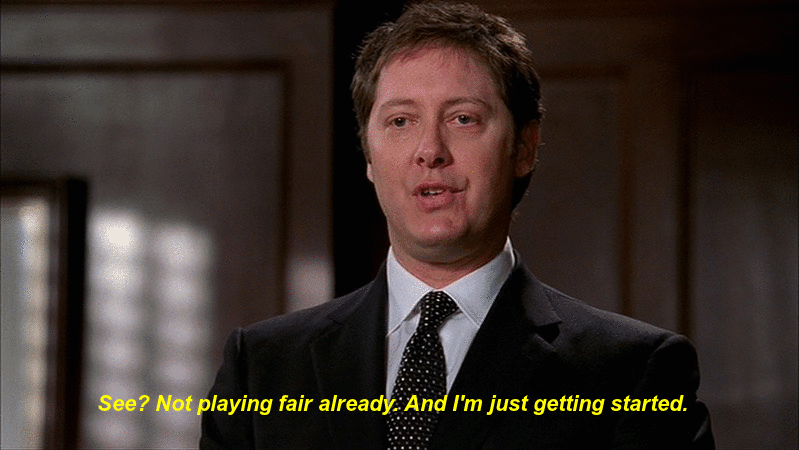Updated on March 13, 2018

A once-aspiring lawyer, I abandoned a bright and prestigious legal career (a woeful exaggeration) to work in a start-up.
Now doing Content Marketing at a Singapore e-commerce start-up, my curious situation never fails to intrigue most people, especially the wide-eyed pre-university interns in my company, hearts still full of ambition.
Like most Singaporeans, my parents brought me up to believe that my future success and happiness directly correlated to how well I did academically. Acing the PSLE, GCE ‘O’ and ‘A’ Level examinations were but checkpoints in this shared roadmap to my success, culminating in a “good” university degree and promising career prospects.
My ‘A’ Level results were good enough to grant me entry to almost any local university course of my choosing, but quite paradoxically, my choices became limited to the few stereotypically noble professions, emblematic of Asian success. I’ve always had a good command of English and 18-year-old me was quite a mouthy and argumentative person, making law seem like an obvious choice. With my knowledge of the legal industry limited to sensationalised US legal dramas, I too, became seduced by the seemingly glamorous lives of lawyers – descending into courtrooms, delivering rousing closing submissions and ending their nights with celebratory cigars and whiskey. But 4 years of clinical depression and a SGD$40,000 debt later, I had uncovered how deeply entrenched the misunderstandings of the legal industry actually were.

I had spent 4 years of my life pursuing a degree that, as it turned out, I thoroughly abhorred. My results were subpar and the legal industry was facing a glut of fresh graduates. Despite the less than rosy career prospects, general “advice” from my peers was to, at the very least, pass the Bar Examinations and become a licensed legal practitioner. After all, what good is a law degree if you can’t technically call yourself a lawyer?
However, I was finding it hard to reconcile having to go through the ordeal of job rejections, spending another few thousands of dollars in Part B fees and then slogging away the next few years of my life in a law firm, just to have something to show for my degree. On the contrary, was I to forsake the last 4 years of my life and give up on a prestigious legal career coveted by many?
Somewhere amidst the mental breakdowns, I reached an epiphany. Why waste another few years in a profession that I clearly had no interest in, just because of the prestige and parental and societal expectations?
Nobody knows what they want when they’re 19
 Unfortunately, due to the nature of Singapore’s education system, most of us are forced to decide on our university courses from as young as 19. I’m not sure about you, but at 19, I was still going through delayed puberty and was hardly in the right frame of mind to make drastic life-changing decisions.
Unfortunately, due to the nature of Singapore’s education system, most of us are forced to decide on our university courses from as young as 19. I’m not sure about you, but at 19, I was still going through delayed puberty and was hardly in the right frame of mind to make drastic life-changing decisions.
Furthermore, without the necessary internships and work experience, it simply isn’t possible to know definitively what you want as a future career. In Singapore, taking a gap year or a leave of absence from university to gain experience is typically seen as a privilege, not accorded to many. Hence, decisions are largely made on misconceptions and many of us come to realise that what we thought we wanted, isn’t what we initially perceived it to be. Do not subject yourself to the folly made when you were young and foolish and look outside of your university degree to find where your passions truly lie.
There are plenty of career paths available
Once you open your eyes to the possibilities, there are actually plenty of career paths that are available. While our parents’ ideas of noble professions are limited to doctors, lawyers, accountants and engineers, some of the most in-demand professions today didn’t even exist 10 years ago. Heard of Big Data Analysts? User Experience Designers? Or even Chief Listening Officers? It is estimated that 65% of children entering primary school today will end up in careers that do not even exist yet. And with digital continuing to be at the forefront of our economy, this trend is only expected to accelerate exponentially.

Paradox of choice?
But with more options, comes harder choices. Before you set yourself astray on yet another misguided career path, narrow down your available options to something that you have both the skills and interest in.
Eliminate what you DON’T like
For me, I knew quite early on in the course of my university life that I detested what I was studying. I was unmotivated, depressed and my results were mediocre at best. I completed two legal internships and for both, every work day was full of dread and anxiety. Other than the nature of the job, I found the hierarchical structure and corporate culture to be incredibly stifling. Though I grudgingly managed to trudge through the rest of my university life, at the end of 4 years, the legal industry simply wasn’t one that I could envision myself in for the rest of my life.
Know your strengths and inclinations
I have always been a creative individual, and I knew that I wouldn’t be able to thrive in stuffy corporate environments. Though it wasn’t apparent to myself at the time, I definitely had inclinations to marketing, taking on Marketing executive positions in various sub-clubs during my time in university. I also had an interest in content creation and writing, having helmed a quasi-successful beauty blog when I was in university. These inclinations, once identified, helped to steer me in the right direction and narrow down my options quite significantly.
Soft skills are equally, if not, more important
If you’re afraid that not having the right degree or experience might be an impediment to your job search, know that increasingly, soft skills are becoming more, if not just as important as what’s on paper. With the digital and tech industry in constant flux, soft skills like adaptability, leadership and culture fit are attributes that can set you apart from your competition.
Many tech companies and start ups are founded on risk-taking and hard work and hence, are more open to hiring capable individuals with potential for growth, regardless of their university degrees or work experience. When I applied for the Content Marketing position at ShopBack, I quite frankly wasn’t very confident of being shortlisted for an interview. I later found out that I was given a shot at the position because my superior believed I possessed the skills and aptitude for the job, despite my lack of relevant qualifications or experience. In fact, like many start-ups, a good number of my current company’s employees come from a variety of university and work backgrounds not relating to e-commerce or tech at all.
Your university degree can help you get a foot in the door, but what keeps you there is your ability to assimilate and execute tasks on the job.
Dive into the deep end

With all that has been said, the most important piece of advice I can give is to throw yourself into the deep end. Even if you’re unsure of a certain position, just take a shot at it anyway. Going for interviews is a great way to find out what kind of jobs, companies and industries are out there, even if you aren’t eventually offered any position.
Perhaps a point of contention, but your 20s is the best time for you to go out and get all the experience you can get. We live in a time different from our parents, and no longer is it the norm to spend 10 years in the same job function and company. Don’t be afraid that you might make the wrong choice with your first job. Go out, gain experience and find out what interests and drives you.
However, that’s not to say that you should behave like the “strawberry” and reckless millennials that society perpetuates us to be. Talk to people, do your research, and most importantly, give yourself time. Even though your peers may be securing their jobs way before graduation, comparing yourself to another person’s progress does you no service at all.
While I wouldn’t say that I am living out my true passions in life, I know that I no longer wake up every morning with feelings of dread. For most of my 4 years in university, I thought that my future had been circumscribed by what my parents and the Singapore education system expected of me. My inner afflictions and path to self-realisation probably would have been more painless with the wisdom of another, and whilst you may not be in the same predicament that I was in, these realisations I had were pivotal in guiding me to veer off the road of convention.
This article originally appeared on the DigitalSenior.sg

